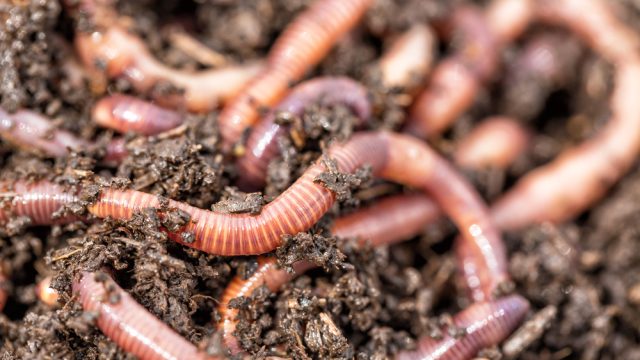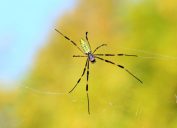If You Live Here, Prepare for an Invasion of Toxic Worms, Experts Warn
Experts warn that you should wash your hands after touching the newly arrived species.
Coming across a wiggling worm while digging through the dirt in your garden is usually an excellent sign. Despite looking gross to some, many consider the slithering invertebrates to be highly beneficial to soil beds and your plants' health. But according to experts, an invasion of a new worm species through some areas in the U.S. could create problems for green thumbs due to their toxic nature. Read on to see which places are being affected by the new arrival.
RELATED: This Is the Most Hated Insect in the U.S., New Survey Shows.
There are likely more non-native species in your local ecosystem than most realize.
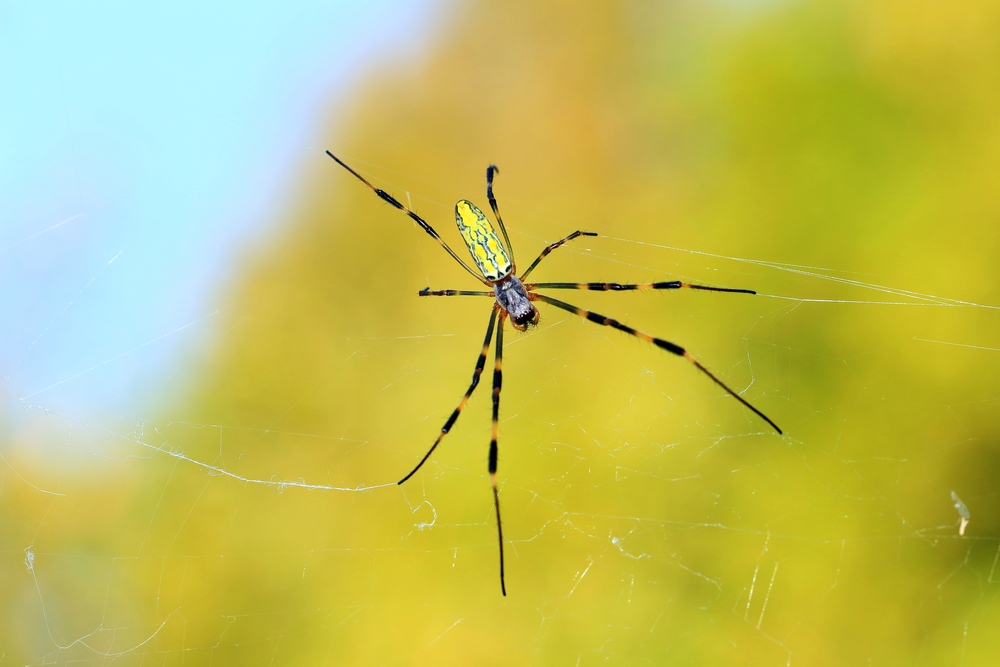
Invasive species are nothing new in the world of bugs and animals. In some cases, the new arrivals can upend entire ecosystems since they are free to hunt without any existing predators. Or it can simply be shocking to see joro spiders drifting in the wind as they spread across their new home in the U.S. after arriving from Asia.
But even though the term "invasive species" usually describes a newly introduced organism that's detrimental to existing plants and animals, a surprising amount of flora and fauna across the world has been transplanted from the places they originally called home. This even includes the much-loved nightcrawler earthworms considered a gardener's best friend, which are thought to have accidentally been snuck into North America and Asia from Europe in the soil used as ballast on early arriving ships.
Invasive hammerhead worms are reportedly spreading through parts of the U.S.
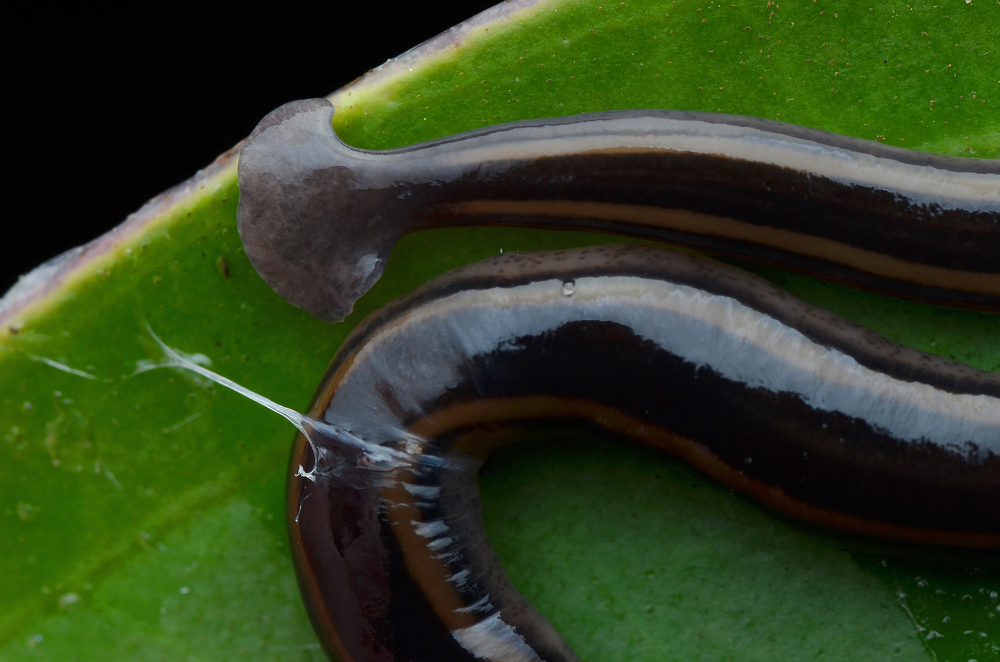
Unfortunately, not all new arrivals bring benefits. Experts warn that invasive hammerhead worms have been spreading across southern states in the U.S., such as Louisiana and Georgia. The species, which is also sometimes called a shoveled worm due to the shape of its head, can grow to be up to a foot long, the Shreveport Times reports.
"Hammerhead worms are native to tropical and subtropical environments," Katelyn Kesheimer, PhD, an entomologist with Auburn University and the Alabama Cooperative Extension System, said. "It is likely they hitchhiked to the United States on the roots of horticultural plants and may continue to be accidentally spread across the country on roots or soil of potted plants. Regardless of how they got here, it appears they are here to stay."
RELATED: For more up-to-date information, sign up for our daily newsletter.
Experts caution people to avoid doing one thing with the toxic worms.

According to experts, the immediate negative consequence of hammerhead worms is that they're predators feeding on beneficial nightcrawlers as part of their diet. Fortunately, they have yet to throw off the ecological balance in most areas.
"These things have a small ecological impact on the things that they're feeding on," Chris Carlton, PhD, Director Emeritus at the Louisiana State University Ag Center, told the Shreveport Times. "In the case of this common one that feeds on earthworms, most of the earthworms that we have in Louisiana are actually introduced as well. So you have a situation where you have an introduced predator feeding on introduced earthworms. So, the net impact on the environment is probably zero."
But there may be a more immediate unintended consequence of coming across the worms when tending to your soil beds. "You certainly don't want to pick them up with your bare hands, because they can secrete that toxin and as far as we know, we don't have a ton of research on this, but it can cause your skin to be irritated," Kesheimer warns, adding that anyone who handles one should immediately wash their hands.
Getting rid of the worms can be more difficult than gardeners realize.
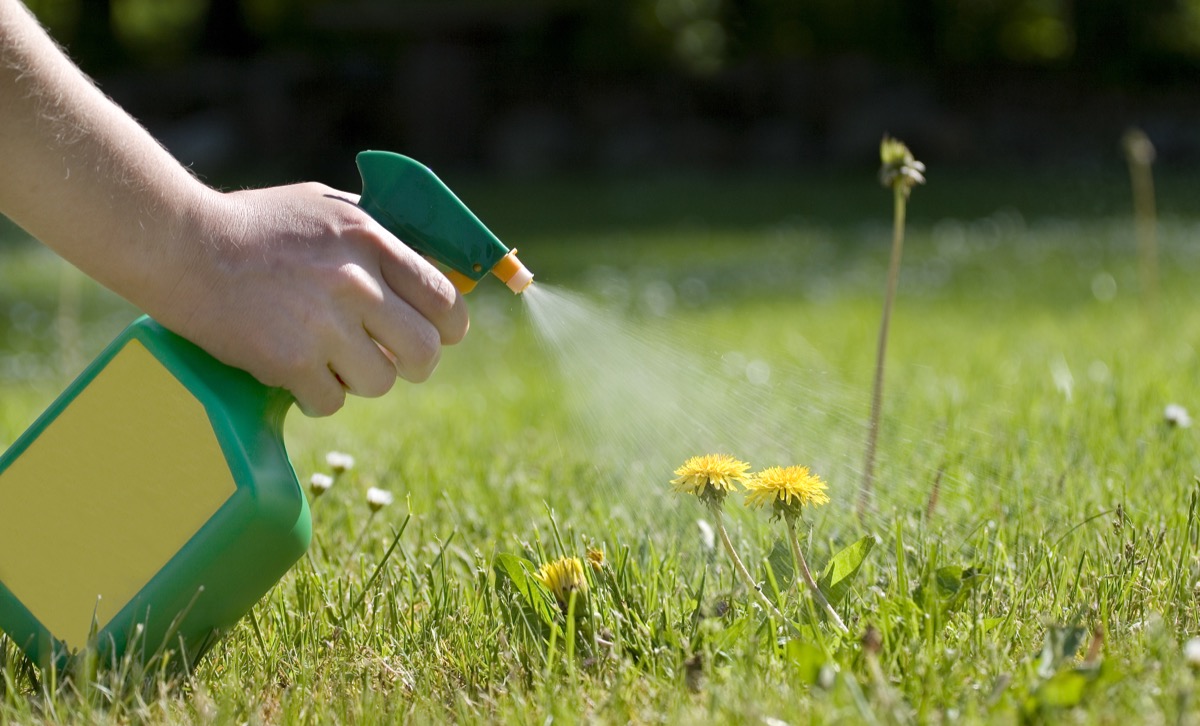
While experts say there's no reason to panic over the unwanted additions to your yard, it's still advisable to report the pests to local authorities and exterminate any that you find. Unfortunately, this can be a more difficult task than some gardeners realize. "The thing to keep in mind is that these worms reproduce asexually, so if you are trying to get rid of them, cutting them in half will only make more worms," Kesheimer cautions.
Instead, some natural forms of worm control can come in handy, such as applying salt or vinegar directly to the crawlers or carefully putting them in a bag using gloves or a paper towel to discard them. "When I see them now, I use something to scoop them up and bring them in and put them down the trash disposal," Curtis recommends.
RELATED: If You See This Scary Bug in Your Home, Don't Kill It, Experts Warn.
